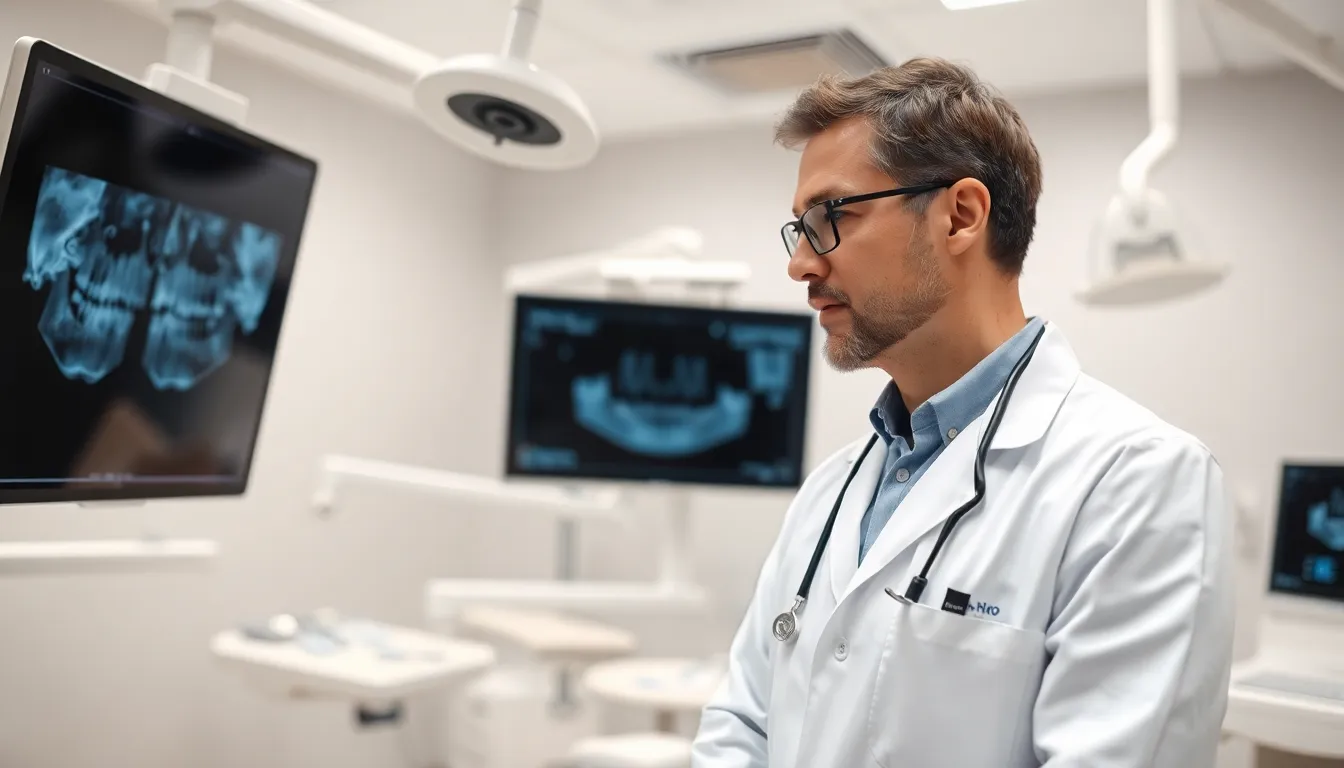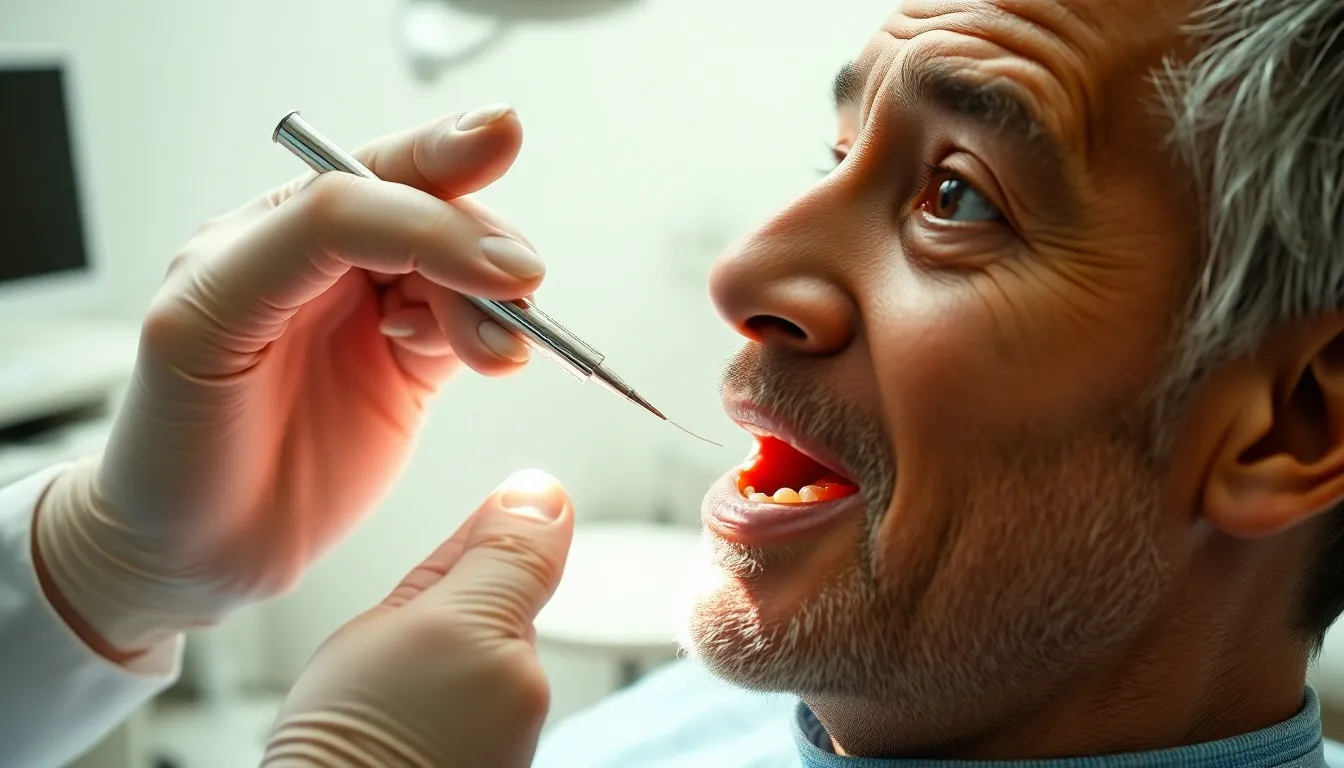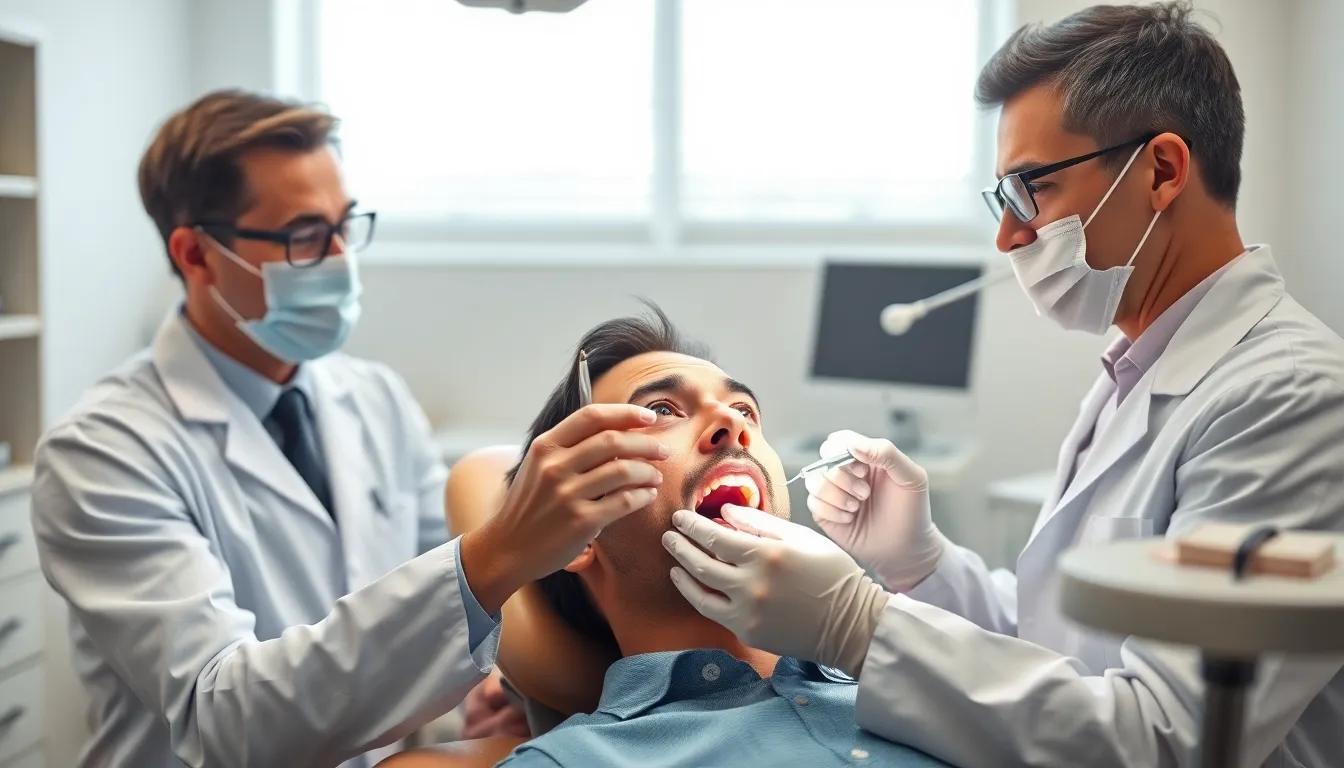Confused about the difference between a dentista, odontólogo, and ortodoncista? While these Spanish terms might seem interchangeable, they actually represent distinct dental specialties that could significantly impact your oral health care decisions.
When you’re seeking dental care in Spanish-speaking countries or communities, understanding these professional distinctions becomes crucial. A dentista is a general dental practitioner, an odontólogo typically has advanced education in dental medicine, and an ortodoncista specializes specifically in correcting teeth alignment and jaw irregularities. Knowing which specialist to visit can save you time, money, and potentially unnecessary treatments.
Understanding Dental Professionals: Dentists, Odontologists, and Orthodontists
Dental professionals have distinct roles that often cause confusion among patients seeking oral healthcare. The terms dentist, odontologist, and orthodontist each represent exact training, expertise, and focus areas within dental medicine.
A dentist provides general dental care including routine checkups, cleanings, fillings, and extractions. They’re typically your first point of contact for oral health concerns and can diagnose various dental issues. Dentists complete four years of dental school following their undergraduate education and earn either a Doctor of Dental Surgery (DDS) or Doctor of Dental Medicine (DMD) degree.
Odontologists, particularly common in Spanish-speaking countries, possess comprehensive training in all aspects of oral health. They’ve studied dental medicine extensively and can practice general dentistry while potentially specializing in exact areas. In many countries, the terms dentist and odontologist are used interchangeably, though odontologist often implies a broader medical approach to dental care.
Orthodontists are dental specialists who focus exclusively on correcting teeth alignment and jaw irregularities. They complete additional training beyond dental school, typically 2-3 years of specialized residency in orthodontics. Their expertise centers on diagnosing and treating malocclusions (improper bites) using braces, clear aligners, retainers, and other corrective appliances.
“I once had a patient who’d been seeing a general dentist for years but couldn’t understand why her teeth remained crooked even though regular care,” Dr. Todd B. Harris recalls. “She didn’t realize that straightening teeth requires an orthodontist’s specialized skills. After I explained the difference between dental professionals, she finally sought appropriate treatment and achieved the smile she’d always wanted.”
Understanding these distinctions helps you navigate the dental healthcare system effectively. Recognizing which specialist to consult for exact oral health concerns saves time, money, and potential frustration in your journey toward optimal dental health.
What Is a Dentist?

A dentist (odontólogo in Spanish) is a healthcare professional specialized in diagnosing, preventing, and treating oral health issues involving teeth, gums, and the mouth. They provide comprehensive dental care through various treatments while using diagnostic tools like visual inspections and X-rays to detect cavities, gum disease, infections, and other oral conditions.
General Dental Services
Dentists perform a wide range of essential procedures to maintain your oral health. Teeth cleaning removes plaque and tartar buildup, preventing tooth decay and gum disease—a service often performed by dental hygienists under a dentist’s supervision. Digital X-rays reveal hidden issues like cavities, bone loss, or infections that aren’t visible during regular exams. Fillings treat cavities by removing decay and filling the tooth with composite resin or amalgam to restore function and prevent further damage.
Extractions become necessary when teeth are severely damaged from decay, infection, or overcrowding, and are performed under local anesthetic for your comfort. Root canal therapy saves severely infected teeth by removing the infected pulp inside, eliminating pain while preserving the natural tooth. Crowns and bridges repair damaged teeth or replace missing ones, restoring both function and appearance. Preventive treatments like sealants and fluoride applications protect teeth from decay, particularly beneficial for children with developing teeth.
Many general dentists also offer specialized services including sleep apnea treatment, sedation dentistry for anxious patients, and cosmetic procedures like dental bonding to improve your smile’s appearance.
When to Visit a Dentist
Regular dental checkups every six months allow for preventive care and early detection of potential problems before they become serious. Tooth pain or sensitivity often indicates underlying issues requiring professional attention. Bleeding or swollen gums might signal gingivitis or periodontitis, conditions that can lead to tooth loss if left untreated. Loose or damaged teeth need immediate evaluation to determine appropriate treatment options.
Difficulty chewing or biting affects your nutrition and quality of life, warranting a dental appointment to identify and address the cause. Persistent bad breath or signs of infection like swelling or pus deserve prompt attention as they may indicate serious dental or gum disease.
The Role of an Odontologist

An odontologist specializes in the study of teeth and oral structures. While the terms “odontologist” and “dentist” are often used interchangeably in some countries, they can refer to different professional focuses in others. Odontologists primarily study dental structures, whereas dentists typically concentrate on treating oral health conditions affecting teeth and gums.
Specializations Within Odontology
Odontology branches into several specialized fields that address different aspects of oral health. General dentistry forms the foundation of odontological practice, with dentists diagnosing conditions, providing preventative care, and performing common procedures like filling cavities and extracting damaged teeth. Orthodontics represents another key specialization, focusing on correcting teeth alignment and jaw positioning through appliances such as braces to enhance both dental function and aesthetics. Many patients come to our practice confused about these distinctions, like Maria who initially sought treatment for a cavity but discovered she needed orthodontic intervention for her misaligned bite that was causing recurring pain.
Forensic Odontology
Forensic odontologists apply their dental expertise to legal matters, serving as a crucial link between dentistry and the justice system. These specialized professionals help identify human remains when other identification methods aren’t viable, carefully analyzing dental records to establish identity with remarkable accuracy. They examine bite marks found on victims or objects to determine their origin, providing critical evidence in criminal investigations. Forensic odontologists regularly testify in court as expert witnesses in cases involving dental malpractice or other legal issues related to dental evidence. Dr. Harris notes that forensic odontology highlights the broader significance of dental science beyond clinical practice, demonstrating how dental knowledge contributes to solving complex legal puzzles and bringing closure to families in identification cases.
Orthodontists: Specialists in Dental Alignment

Orthodontists are dental specialists who focus exclusively on correcting teeth and jaw alignment issues. Unlike general dentists (odontólogos), orthodontists complete additional specialized training beyond dental school to address malocclusions and misalignments in patients of all ages.
Common Orthodontic Treatments
Orthodontic treatments primarily involve appliances designed to realign teeth and jaws for improved function and aesthetics. Braces and clear aligners represent the most frequently used devices to correct various dental irregularities. These specialized tools effectively address crowded teeth, overbites, underbites, crossbites, and gaps between teeth. Orthodontic intervention can also alleviate related functional problems such as difficulty chewing, speech impediments, and certain types of sleep apnea.
Dr. Todd B. Harris often tells his patients, “Orthodontic treatment isn’t just about creating beautiful smiles—it’s about establishing proper dental function that contributes to overall health and confidence.”
The Orthodontic Treatment Process
The orthodontic journey begins with a comprehensive examination including diagnostic tests that evaluate your teeth and jaw structure. Your orthodontist then creates a customized treatment plan that might incorporate braces, retainers, or aligners based on your exact needs. Regular follow-up appointments allow for necessary adjustments to your appliances and progress monitoring. Orthodontists collaborate closely with other dental professionals, including general dentists and oral surgeons, to provide comprehensive care. They also emphasize proper oral hygiene education throughout treatment to maintain healthy teeth while alignment corrections occur.
Many patients like Maria, who struggled with severe crowding and an overbite, experience important improvements in both function and appearance. “My orthodontist not only transformed my smile but also eliminated the jaw pain I’d experienced for years,” she shares, highlighting the comprehensive benefits of specialized orthodontic care.
Differences Between These Dental Professionals

Understanding the distinct roles of dental professionals helps you make informed decisions about your oral health care. The terms dentista, odontólogo, and ortodoncista represent different levels of specialization and scope of practice within the dental field.
Education and Training Requirements
Dentistas and odontólogos complete a general dental degree program that typically spans 4-5 years. In many Spanish-speaking countries, these terms are used interchangeably, though “odontólogo” often carries a more formal connotation. Ortodoncistas undergo significantly more extensive education, completing the general dental degree plus an additional 3 years of specialized university training focused exclusively on orthodontics. This specialized training equips them with advanced knowledge in teeth alignment, jaw positioning, and facial development. Dr. Todd B. Harris notes, “The additional years of specialized education an orthodontist receives makes a substantial difference in their ability to handle complex alignment cases that general dentists might refer out.”
Scope of Practice
Dentistas and odontólogos provide comprehensive oral healthcare services, addressing a wide range of dental issues. Their expertise covers routine cleanings, fillings, extractions, root canals, and overall management of oral diseases affecting teeth, gums, nerves, and jaws. Ortodoncistas focus specifically on diagnosing, preventing, and correcting misaligned teeth and jaws. They specialize in treatments using braces, clear aligners, and other orthodontic appliances to achieve proper alignment and function.
| Professional Type | Education | Primary Focus |
|---|---|---|
| Dentista/Odontólogo | General Dental Degree (4-5 years) | Overall oral health, dental diseases, general care |
| Ortodoncista | General Dental Degree + 3 years specialized training | Teeth alignment, bite correction, jaw positioning |
How to Choose the Right Dental Professional for Your Needs

Selecting the appropriate dental professional matches your exact oral health concerns with the right expertise. Understanding the differences between general dentists and specialists ensures you receive optimal care for your unique situation.
Identify your primary dental concern first—whether it’s routine care, misaligned teeth, or a exact issue requiring specialized attention. For general checkups, cleanings, fillings, and basic oral health maintenance, start with a general dentist (odontólogo). They serve as your first point of contact and can refer you to specialists when necessary.
Consult an orthodontist (ortodoncista) if you’re dealing with bite or alignment issues. These specialists have completed additional training specifically for correcting misaligned teeth and jaws using braces, clear aligners, and other orthodontic appliances.
Always verify that your chosen provider is licensed, experienced, and has positive patient reviews. Check whether your dental insurance covers the specialist’s services and if you’ll need a referral from your general dentist. During your initial consultation, pay attention to the provider’s communication style and your overall comfort level with them.
Questions to Ask During Your First Appointment
Preparing thoughtful questions for your initial dental consultation helps you make informed decisions about your treatment. Ask about the dentist’s experience with your exact dental concern to gauge their expertise in addressing similar cases.
Discuss all available treatment options and request their professional recommendation. Understanding the full range of possibilities allows you to participate actively in your treatment planning.
Inquire about the expected treatment timeline and associated costs. Dental procedures vary significantly in duration and price, so having clear expectations helps with planning.
Request information about potential risks or side effects associated with recommended treatments. Every dental procedure carries some level of risk, and being aware of these possibilities is essential for informed consent.
Ask what to expect during recovery or follow-up visits. Knowing the post-treatment process helps you prepare adequately and schedule time off work if needed.
Benefits of Regular Visits to Dental Specialists
Overview
Regular dental specialist visits provide essential preventive care that supports both oral health and overall wellbeing. These appointments with dentistas, odontólogos, or ortodoncistas create opportunities for professionals to monitor your dental health and address concerns before they become serious problems.
Benefits of Regular Visits
Early Detection and Prevention
Regular checkups enable dental specialists to identify cavities and gum disease at their earliest stages when treatment is simpler and less invasive. Dental professionals use specialized tools to detect issues that aren’t visible to the untrained eye, potentially saving you from painful complications and expensive treatments later. Many of my patients, like Maria who avoided a root canal through early cavity detection, experience important benefits from consistent preventive care.
Prevention of Gum Disease
Routine dental visits help protect your gums from periodontal disease through professional cleanings that remove plaque buildup ordinary brushing can’t reach. Your dental hygienist demonstrates proper brushing and flossing techniques customized to your exact needs during these appointments. Gum disease prevention remains one of the most valuable yet underappreciated benefits of regular dental care.
Screening for Oral Cancer
Dental specialists perform oral cancer screenings during regular checkups, examining your mouth, throat, and neck for suspicious signs. Early detection dramatically improves treatment outcomes for oral cancer patients. Dr. Harris notes that these screenings have helped identify precancerous conditions in many patients, potentially saving lives through timely intervention.
Improved Oral Health and Education
Professional cleanings remove stubborn plaque and tartar while providing personalized oral hygiene instruction. Your dental team offers guidance on proper brushing techniques, flossing methods, and product recommendations based on your exact oral health needs. Each appointment serves as both a cleaning session and an educational opportunity to enhance your daily dental care routine.
Overall Health Benefits
Regular dental visits contribute to better general health since oral conditions often connect to systemic issues like heart disease and diabetes. Dental specialists can recognize signs of health problems that first manifest in the mouth, potentially alerting you to concerns requiring medical attention. The mouth-body connection underscores why dental care extends beyond aesthetics to play a crucial role in your complete healthcare picture.
Specializations
Dentista (General Dentist) provides comprehensive oral healthcare including routine cleanings, fillings, extractions, and preventive education. Your dentista serves as your primary oral healthcare provider for most general dental needs.
Odontologo focuses on diagnosing, treating, and preventing various oral diseases with particular emphasis on dental medicine principles. Many odontologos, especially in Spanish-speaking countries, combine general practice with specialized knowledge in exact treatment areas.
Ortodoncista (Orthodontist) specializes in correcting teeth alignment and jaw irregularities using braces, clear aligners, and other orthodontic appliances. Your ortodoncista develops customized treatment plans to address exact alignment issues while monitoring progress through regular adjustment appointments.
Conclusion
Handling the industry of dental professionals doesn’t have to be confusing. Whether you need routine care from a dentista general cleanings from an odontólogo or specialized alignment treatment from an ortodoncista you now have the knowledge to choose wisely.
Remember that matching your exact oral health needs with the right specialist can save you time money and unnecessary procedures. Your smile deserves the appropriate expertise whether that’s preventive care treatment of existing issues or corrective orthodontic work.
By understanding these distinct roles you’re empowered to take control of your dental health journey. Don’t hesitate to verify credentials ask questions and ensure you feel comfortable with your provider. Your oral health is too important to leave to chance.
Frequently Asked Questions
What is the difference between a dentista and an odontólogo?
A dentista is a general dental practitioner who provides routine dental care. An odontólogo has more advanced education in dental medicine and is more common in Spanish-speaking countries. While both can perform general dentistry procedures, an odontólogo may have more specialized training in certain areas of oral health care. The distinction is primarily relevant in Spanish-speaking regions.
What does an ortodoncista specialize in?
An ortodoncista (orthodontist) specializes in correcting teeth alignment and jaw irregularities. They undergo 2-3 years of additional training beyond dental school to focus on this specialty. Orthodontists use appliances like braces and clear aligners to treat issues such as crowded teeth, overbites, underbites, and other malocclusions to improve both function and appearance.
How long does dental education take for each professional?
Dentistas and odontólogos typically complete 4-5 years of dental education to earn their degree (DDS or DMD in the US). Ortodoncistas require an additional 3 years of specialized training after dental school, focusing specifically on orthodontics. This extensive education equips them with advanced knowledge in teeth alignment, jaw positioning, and facial development.
How do I know which dental professional I should see?
Start with a dentista or odontólogo for routine care, checkups, cleanings, and general dental issues. Consult an ortodoncista if you have concerns about teeth alignment, bite problems, or jaw irregularities. Your general dentist can provide a referral if specialized care is needed. Consider your specific dental concerns and match them with the appropriate expertise.
What procedures can a general dentist perform?
A general dentist (dentista) can perform teeth cleanings, digital X-rays, fillings, extractions, root canal therapy, crowns, bridges, and preventive treatments like sealants and fluoride applications. They diagnose and treat common oral health issues involving teeth, gums, and the mouth, and provide preventive care to maintain overall oral health.
How often should I visit a dental professional?
You should visit a dentist every six months for regular checkups and cleanings. These routine visits allow for early detection of potential problems like cavities and gum disease. Regular professional cleanings help prevent periodontal disease, and screenings can detect oral cancer and other health issues. Consistent dental care is essential for maintaining good oral and overall health.
What symptoms indicate I should see a dentist immediately?
Seek dental attention if you experience tooth pain, swollen or bleeding gums, loose teeth, difficulty chewing, persistent bad breath, or visible changes in your mouth tissues. These symptoms may indicate serious issues like infections, advanced gum disease, or even oral cancer. Prompt attention can prevent complications and more extensive treatment later.
What questions should I ask during my first dental appointment?
During your first appointment, ask about: treatment options for your specific condition, expected timeline and number of visits, total cost and insurance coverage, potential risks or complications, recovery expectations, and preventive care recommendations. Also inquire about the dentist’s experience with your particular dental issue and any alternative treatment approaches.
How does orthodontic treatment work?
Orthodontic treatment begins with a comprehensive examination including X-rays and impressions. The orthodontist develops a customized treatment plan using appliances like braces or clear aligners to gradually shift teeth into proper alignment. Regular follow-up appointments allow for adjustments. Treatment typically lasts 1-3 years, followed by retainer use to maintain results.
Is there a connection between oral health and general health?
Yes, oral health is closely connected to overall health. Dental professionals can identify systemic health issues that manifest in the mouth, such as diabetes, cardiovascular disease, and immune disorders. Poor oral health has been linked to serious conditions including heart disease and stroke. Regular dental care contributes significantly to maintaining good general health.







